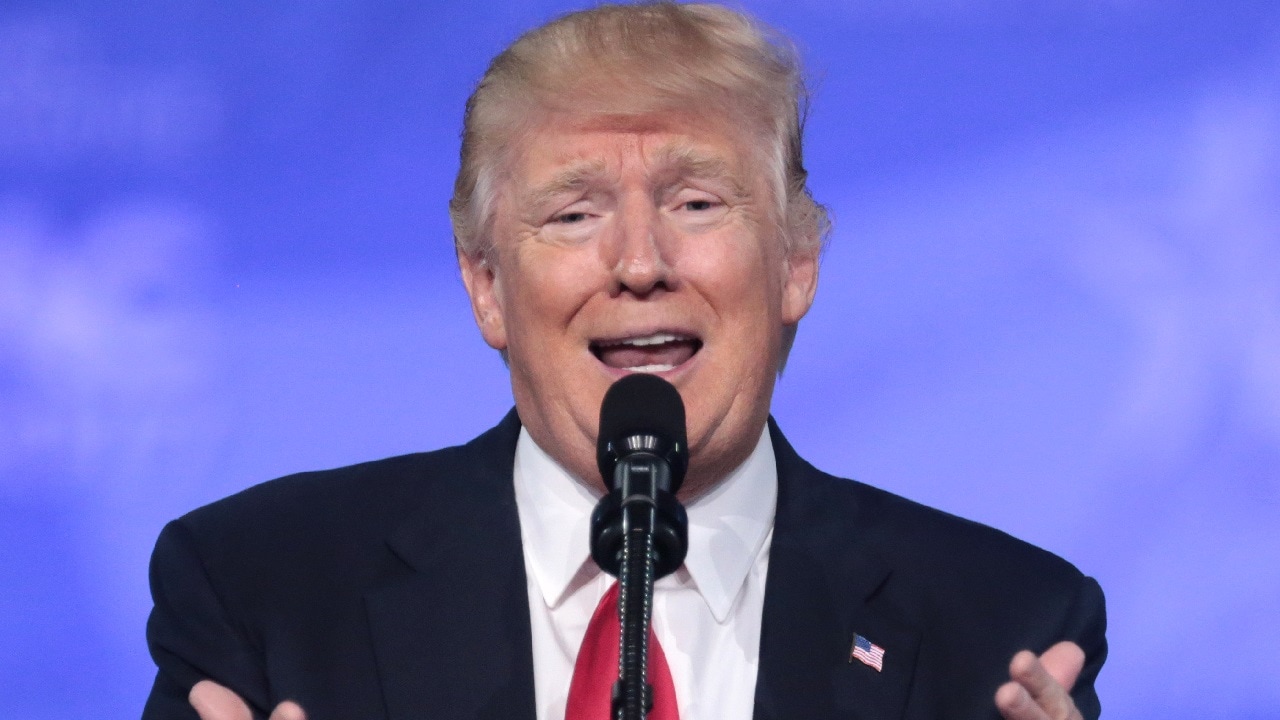Donald Trump at CPAC: An Avenging Angel…Who will Also Protect Social Security? – Former U.S. President Donald Trump is nothing if not mercurial. At this week’s Conservative Political Action Committee conference, Trump was both frightening and reassuring.
He struck perhaps the most vengeful tone yet in his political career; he actually said, ‘I am your retribution.’ To which the crowd roared in approval. Yet he also signaled, more forcefully than ever, that he will protect the entitlements so many Americans count on in their old age – Social Security and Medicare.
Trump’s thirst for revenge is not new. Trump has always marketed himself as a fighter, and his voters have always loved that about him. He has long talked about counter-punching hard. The new ground broken at CPAC – beyond the sheer scariness of his revenge lust – is his open break with Republican ideology on the welfare state.
Trumpism vs Reaganism
For decades after World War II, the GOP was a rather moderate conservative party, akin to Western European Christian democratic parties. It broadly supported traditional social values and market economics. But it was willing to compromise with Democrats on the creation of programs like Medicare and the Environmental Protection Agency.
The rise of Ronald Reagan to the presidency changed that. Reagan brought movement conservatism with him. Now the GOP was more ideological. It acquired specific policy goals with a sharp edge, regardless of public opinion. Nowhere was this more evident than in public spending. The post-Reagan GOP became intensely committed to limiting the expansion of government services. This included a near-theological opposition to tax increases. The logic is that without more revenue, the government cannot do more.
Yet the voters want government to do many things. Specifically, they like the government provision of retirement assistance – Social Security – and medical payment assistance – Medicare and Medicaid. And of course, the voters like defense. Superpowerdom is expensive, and defense spending is popular as both an act of patriotism and to create employment in depressed areas. This broad support for big government is captured in the famous description of the US government as an ‘insurance company with an army.’
This created a fundamental and ultimately irresolvable tension in the pre-Trump GOP. Its elites were ideologically committed to a small state and low taxes, but its voters did not share this vision. The result is that the GOP could cut taxes – who does not like a tax cut? – but could not correspondingly cut spending. The result was repeated, enormous deficits under Republican presidents.
Donald Trump is the first post-Reagan Republican to break with this. He tested this move with his initial 2016 remarks about retaining entitlements, and his CPAC remarks – which were much more explicit – strongly signal that the GOP may, at long last, be coming to accept the welfare state the voters have come to depend on.
Will Donald Trump Agree to Tax Hikes?
Donald Trump is still the leader of the GOP. He still leads his potential challengers in the GOP 2024 primary. His most likely opponent is Florida Governor Ron DeSantis. DeSantis, as a GOP congressman, supported the traditional GOP-Reaganite position of shrinking the welfare state. Given the prominence at CPAC of Trump’s remarks to defend these popular programs, it seems likely Trump will use this as a wedge against DeSantis.
It will likely work. GOP elites – the think-tanks and activists who make up its Washington elite – may support traditional economic Reaganism, but almost no one else in the country does. This then prompts the question of how to pay for the entitlements most voters say they want.
The Reaganite answer was, paradoxically, to cut taxes to supercharge economic growth. Taxes on all that new growth would outweigh the revenue lost to the rate cuts. This ‘supply side economics’ was always controversial. It suggested you could have your cake and eat it too: a tax cut would not reduce government revenue! George H. W. Bush famously referred to this as ‘voodoo economics.’ And the empirical record supports that assertion. Big tax cuts by Reagan, George W. Bush, and Trump were all succeeded by huge deficits.
So if Trump is pulling the GOP into acceptance of the welfare state – or at least Social Security and Medicare, which comprise around 50% of the budget – how does he propose to fund it? An early advisor – Steven Bannon – suggested Trump support an upper-bracket tax hike. No major GOP figure has suggested that in fifty years. If that rhetoric returns – and putting entitlements on a more sustainable footing call for more revenue – then Trump’s economic revolution in the GOP will be complete.
MORE: Pete Buttigieg Is Destroying Himself
MORE: Are We Watching the End of Donald Trump?
MORE: Liz Cheney: Could She Join the Democratic Party?
MORE: Liz Cheney: The Next President of the United States?
Author Expertise and Experience
Dr. Robert E. Kelly (@Robert_E_Kelly; RoberEdwinKelly.com) is a professor in the Department of Political Science at Pusan National University and 19FortyFive Contributing Editor.

